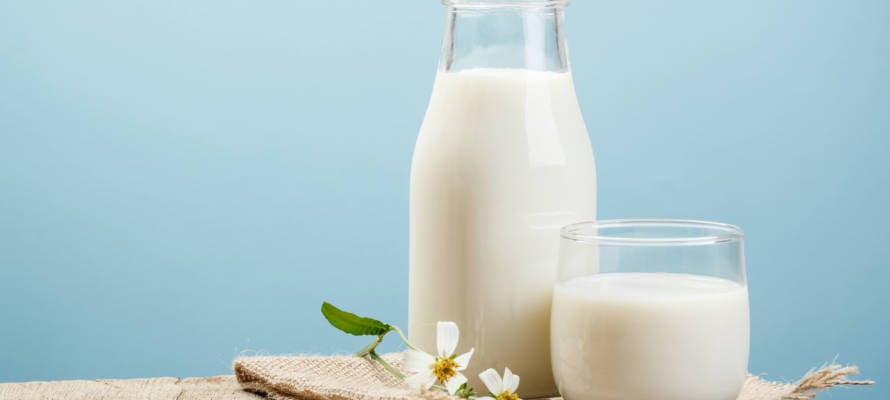The study, led by Professor Nurit Argov-Argaman from Hebrew University’s Robert H. Smith Faculty of Agriculture, Food and Environment, focuses on how the size of the globules impacts interactions with bacteria.
By Pesach Benson, TPS
An Israeli study on the relationship between milk globules and bacteria released on Thursday could open new avenues for the development of probiotic-rich dairy products and infant nutrition.
Researchers from Hebrew University of Jerusalem and the Rehovot-based Agriculture Research Organization discovered that the size of milk fat globules — not just their chemical composition — plays a decisive role in how they interact with bacteria.
The findings were recently published in the peer-reviewed journal Food Chemistry.
Milk fat globules are small droplets of fat that are dispersed in milk. These globules are surrounded by a membrane made up of proteins, phospholipids, and other molecules that help keep the fat suspended in the liquid milk.
The fat contained in these globules is the primary source of energy in milk and contributes to its flavor and texture. These globules, secreted by mammary gland epithelial cells, are essential for delivering nutrients in milk.
The study, led by Professor Nurit Argov-Argaman from Hebrew University’s Robert H. Smith Faculty of Agriculture, Food and Environment, focuses on how the size of the globules impacts interactions with bacteria.
Researchers examined globules derived from both mammary gland cells and raw milk, analyzing their effects on bacterial growth and biofilm formation.
The findings revealed that small milk fat globules promote the growth of Bacillus subtilis, a beneficial bacterium, while larger globules trigger biofilm formation—a behavior linked to bacterial adaptation and resilience.
Interestingly, these structural properties had no effect on Escherichia coli, a pathogenic bacterium, underscoring the specificity of these interactions.
To further validate the importance of structure over composition, scientists tested a synthetic lipid mixture mimicking the chemical makeup of small globules.
The synthetic mixture failed to stimulate bacterial growth, reinforcing the conclusion that physical structure is a critical factor.
“Our research highlights the intricate ways in which the physical characteristics of milk fat globules can influence microbial dynamics, offering potential pathways to enhance health through natural dietary components,” Argov-Argaman said.
The study also included metabolomic profiling, which demonstrated distinct metabolic responses of bacteria to different globule sizes.
These findings suggest that milk’s structural properties could be harnessed to support beneficial bacteria while mitigating harmful bacterial behavior, offering new strategies for dairy science and nutrition.
Notably, the research found functional similarities between raw milk globules and those secreted by mammary gland cells, emphasizing the evolutionary role of milk in shaping microbial ecosystems.
The insights pave the way for innovations in enhancing the health properties of dairy and other foods, with implications for infant nutrition and gut health.
The study suggests that small milk fat globules promote the growth of beneficial bacteria like Bacillus subtilis, which could be leveraged in the development of probiotic-rich dairy products.
The findings could inform the development of infant formulas that mimic the beneficial effects of breast milk, enhancing gut health by fostering beneficial bacterial growth.
The research might also encourage the exploration of personalized nutrition approaches where dairy products are tailored to individual microbiomes.
In addition, manufacturers might be able to design milk products with specific structural properties that promote health benefits, such as enhancing the gut microbiome or improving the bioavailability of nutrients.
The fact that larger milk fat globules trigger biofilm formation, which is linked to bacterial resilience, may open a door to preventing harmful bacterial contamination in dairy products.
Do You Love Israel? Make a Donation - Show Your Support!
Donate to vital charities that help protect Israeli citizens and inspire millions around the world to support Israel too!
Now more than ever, Israel needs your help to fight and win the war -- including on the battlefield of public opinion.
Antisemitism, anti-Israel bias and boycotts are out of control. Israel's enemies are inciting terror and violence against innocent Israelis and Jews around the world. Help us fight back!



